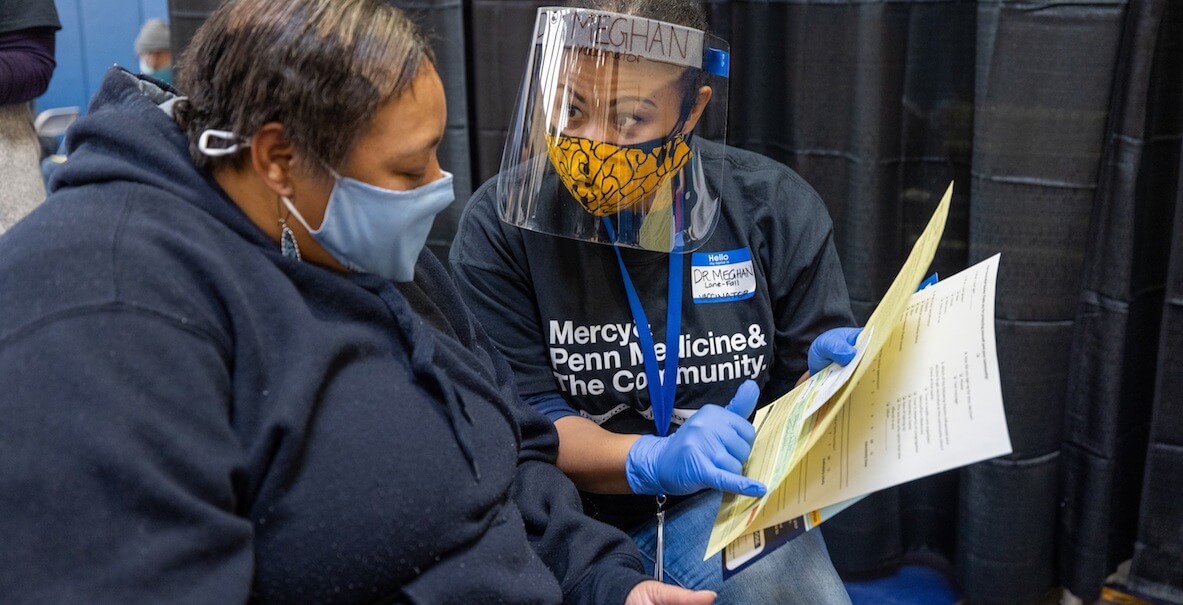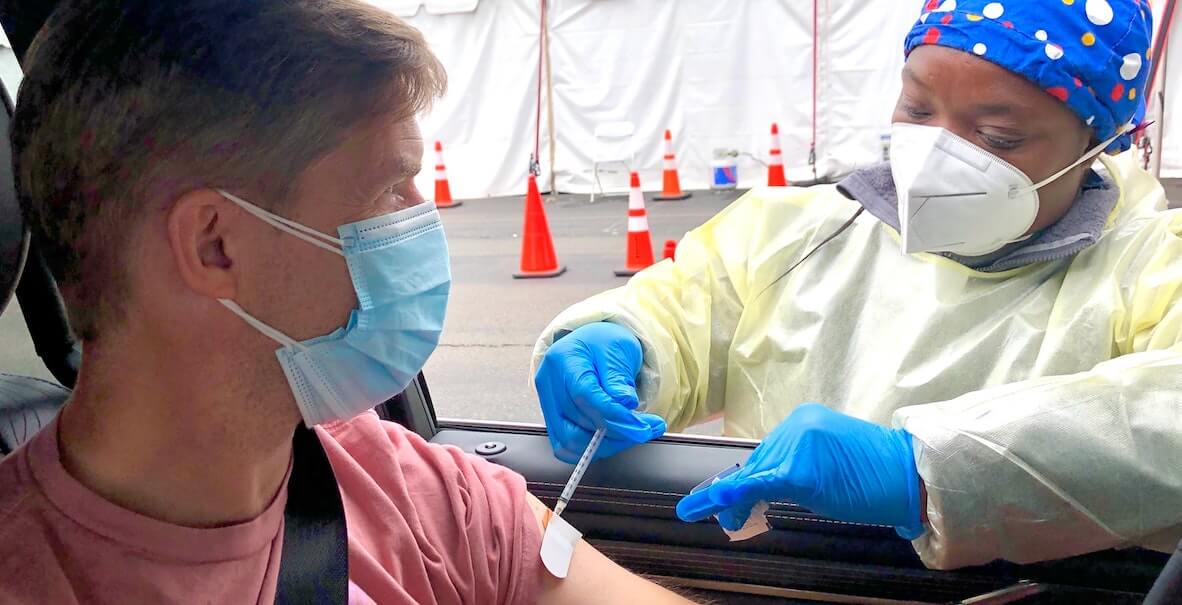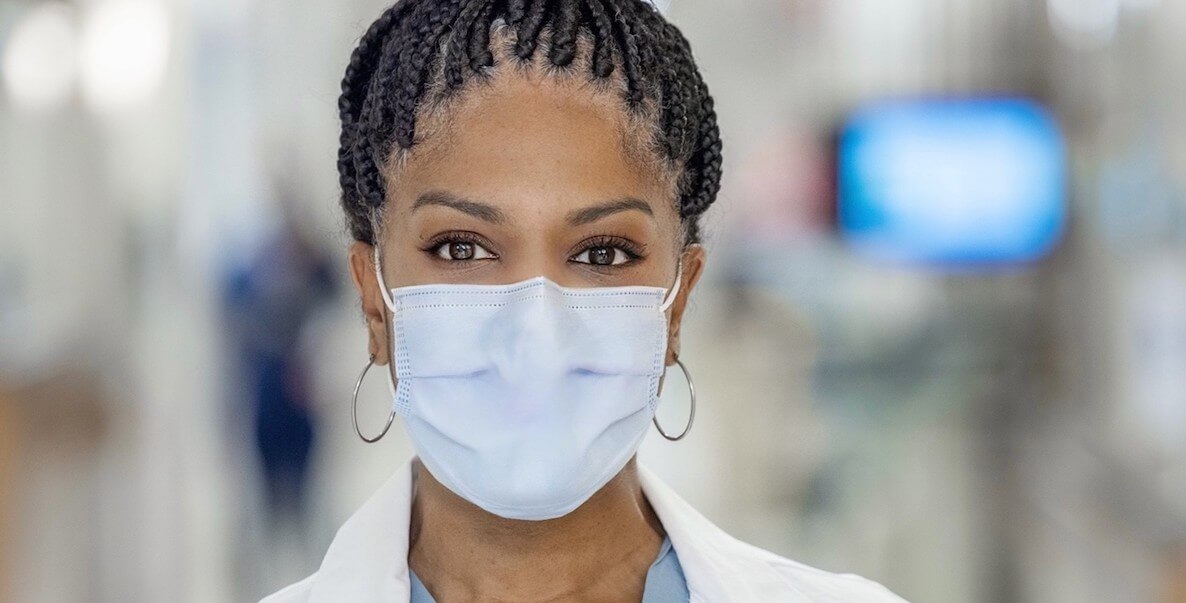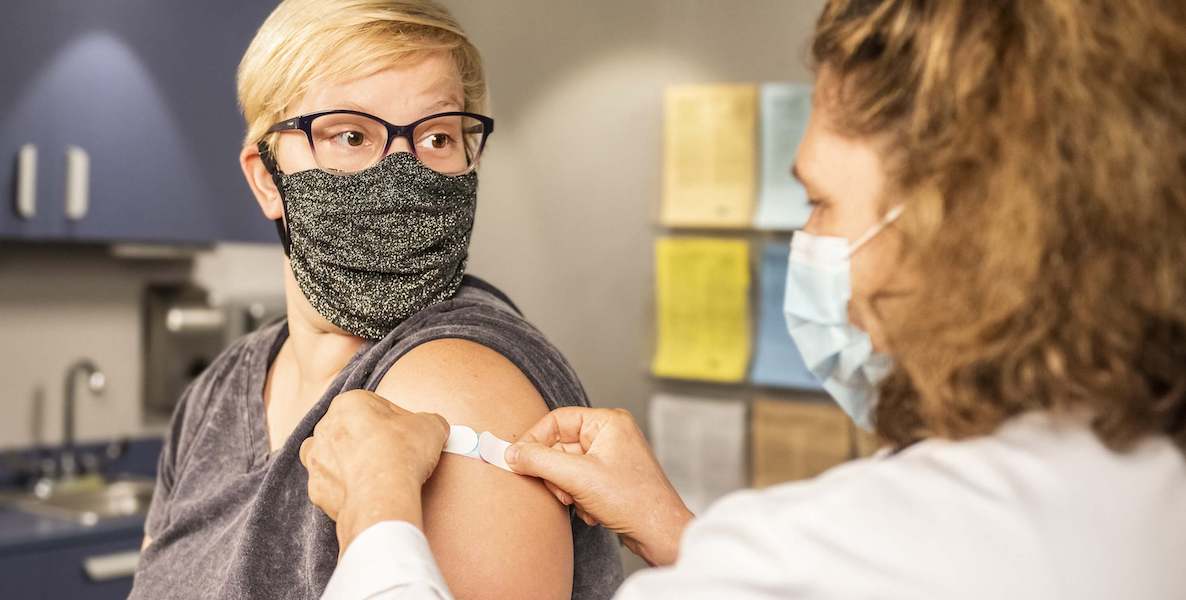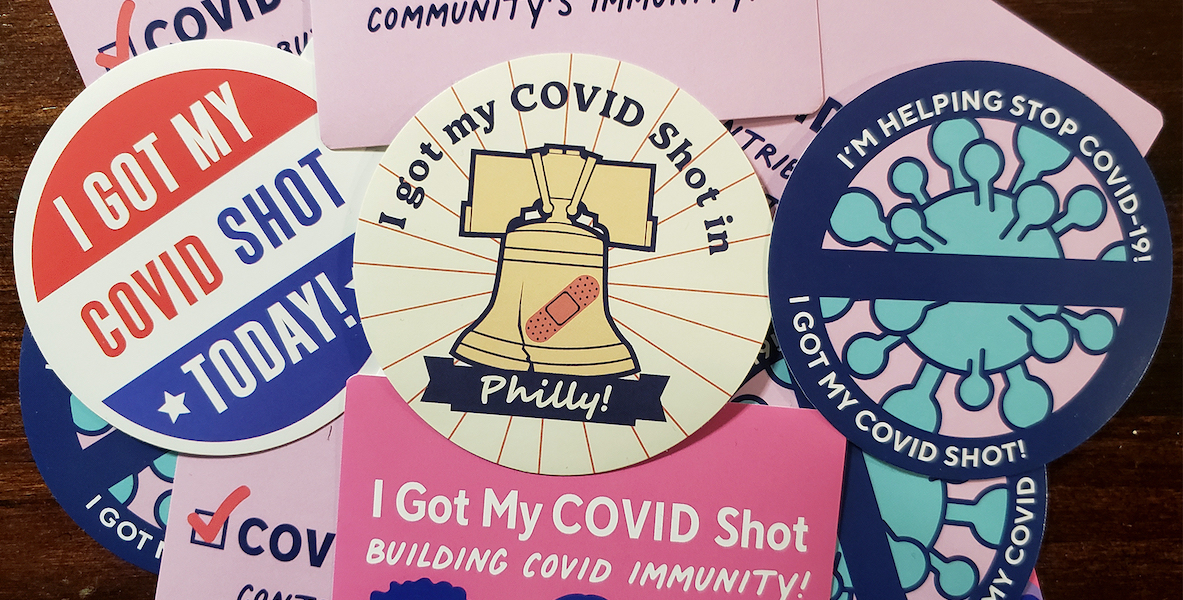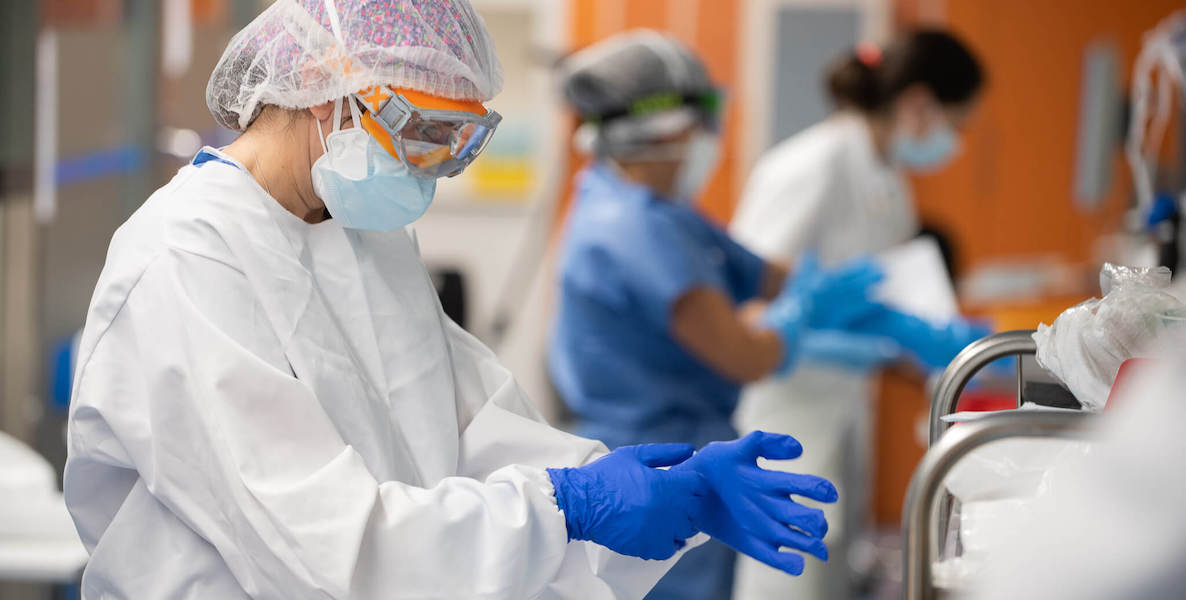Here we are again. The future, uncertain. Big, scary questions stare us down.
How can we slow the spread of the Delta variant? Will the vaccine be effective against new variants bound to emerge? Is it likely that we’ll go through another shutdown?
As has been true for the last year and a half, there’s a lot we just don’t know. What we do know is that Covid cases in Philly are rising. There were 922 confirmed cases last week, compared to 199 the first week of July. The vast majority of infected Philadelphians are unvaccinated. Some are. Delta is responsible for nearly all new cases.
MORE ON COVID AND VACCINES IN PHILADELPHIA
We also know that 62.7 percent of adults in Philly are fully vaccinated; about 50 percent of Americans are vaccinated; and just 15 percent of the global population is vaccinated. Those numbers are starting to rise at higher rates, but the fact is that as long as there is active disease anywhere in the world, the virus will continue to evolve and new variants will continue to emerge.
What the heck are we supposed to do about all this? We asked Dr. George Anesi, attending physician in pulmonary and critical care medicine at the Hospital at the University of Pennsylvania and a researcher with training in, among other areas, clinical epidemiology and high-risk pathogen and disaster preparedness.
Here’s how he’s making sense of what’s happening now and what to expect next.

Katherine Rapin: As we see this rise in Covid-19 cases here in Philly, tell me what that looks like for those of you on the front lines?

Dr. George Anesi: We’ve certainly seen a moderate increase in emergency department visits and hospitalizations and ICU admissions that are fairly consistent with rise and case numbers in the region. These patients are almost all Delta variants at this point. (We sequence a subset of those through the Bushman laboratory at Penn, and the Delta variant is certainly predominating and we’re expecting that it will be essentially all cases very soon.) And the patients that are being admitted to the hospital are almost all unvaccinated. Just a very small number have been vaccinated.
There are reports in other regions and nationally of changes in the demographic of patients who are admitted. We haven’t seen, for example, a drastically younger population yet, but it’s something we’re closely watching.
KR: What are you expecting to see one or two weeks from now, and how are you trying to prepare for that?
GA: I would say that prediction has been very challenging during the pandemic. Many predictions and projections have been not accurate in the end and that’s just a consequence of this still being something that we learn more about each day. And so there’s a huge amount of unknowns. And when there’s a big kind of game-changing addition to the story, like the Delta variant, it makes it all the more complicated to predict.
We certainly try to prepare for a range of possibilities, so that we’re not caught off guard. We have at this point a very robust Preparedness and Response Program across our hospitals and health system, and it’s gone through lots of phases during the pandemic. For a long time now we’ve been in a period where our goal is to manage what can be a quickly changing Covid demand, in parallel to what is our continued high demand for non-Covid, acute care, and all the patients that see us for oncology care, cardiac care and surgical care. So we’re trying to do those hand in hand, in a way that provides good care to everyone, maintains good outcomes for everyone, and keeps everyone safe.
A this point, most hospitalizations and nearly 100 percent of deaths are vaccine-preventable. Every case in the ICU really shouldn’t be there. To us that’s the hardest thing.
KR: How’s morale? How are folks in the hospital feeling as they face this potential surge in Philly?
GA: Frontline healthcare workers have been through just an enormous amount this past year and a half and I think that at this point virtually everyone has some degree of burnout. Certainly some more than others. And I think that there’s a big burden to “doing this again”—another surge, depending on how big it gets. That’s quite demoralizing.
But probably the biggest thing is that at this point, most hospitalizations and nearly 100 percent of deaths are vaccine-preventable. And so that’s heartbreaking. Every case in the ICU really shouldn’t be there. To us that’s the hardest thing. Separate from Covid, you know, we certainly see cases of patients who were not able to have access to the right kind of care that could have prevented a bad disease. Those are heartbreaking cases. This is just a massive amount of heartbreak to see. It’s really—the highest severity of disease is almost all preventable at this point.
Personally, I remain inspired by the incredible work of our biomedical community and the idea that we have these profoundly efficacious vaccines within a year of a totally novel virus is just a triumph. Certainly we had many many public health failures along the way but also incredible triumphs and those are really inspiring.
KR: So what can we do about getting our vaccination numbers up?
GA: There’s not going to be a magic kind of magic fix here; I think it’s going to be a combination of a lot of things. I think that literally every additional person that’s vaccinated is a benefit to the total community. Working on the margins, anyone who’s been hesitant before and is willing to have conversations, have those conversations and see if you can get them to the finish line. Meet people where they are. You know most people do not respond well to being told that they’re in the wrong. You can meet them where they are and understand what their concerns are.
Penn Medicine was one of the earliest private organizations to mandate vaccines for their employees. I think it was a bold move and a lot of other places are following suit—it’s a growing movement. I think that’s really important. It helps take people who are hesitant, if they’re given a strong directive from their organization, I think that pulls a lot of people across the finish line. I would support private employers, large and small, that are willing to make that great commitment for their own employees’ safety, and the safety of their customers and the broader community.
And we’re really waiting with bated breath for the FDA to make full approval of the vaccines. I think people who are concerned about it still being in a kind of an emergency authorization, if it gets full approval that’ll help satisfy some of those concerns.
KR: As we are seeing some breakthrough cases, I know that many vaccinated people are wondering, how careful should I be? How worried should I be?
GA: So I think that one fact certainly remains true, which is that the vaccines that are used in the United States are very effective against preventing severe disease as well as hospitalizations and deaths. They are very, very effective at that. There is a small amount of decrease in efficacy against preventing low acuity, low severity infection and asymptomatic infection with the Delta variants. And there’s very preliminary data that suggests that patients who’ve been vaccinated who do end up getting an infection may be able to spread the virus to others at a greater degree than we had initially determined with vaccines, specifically with the Delta variants. And that’s due to the very high rate of transmissibility of the Delta variant among other factors.
I think that the individual fully-vaccinated person can still have reasonable confidence for their own self. But it gets much more complicated when you have unvaccinated people in your life, like kids or people who are immunosuppressed who might not get a good response to a vaccine. And then there’s an attempt to protect the broader unvaccinated population that still is reasonably substantial.
So I think that’s the impetus for things like renewed calls for masking indoors, which we very much recognize as a huge burden to ask for people who have done the right thing and got vaccinated. But it’s done in the interest of trying to protect people who have not had the vaccine, either because they’re not eligible yet like their kids, or they’re immunosuppressed, or it’s been their choice so far, and that’s an unfortunate piece of that.
Personally, I remain inspired by the incredible work of our biomedical community and the idea that we have these profoundly efficacious vaccines within a year of a totally novel virus is just a triumph. Certainly we had many many public health failures along the way but also incredible triumphs and those are really inspiring.
KR: A lot of folks are getting summer colds right now—can you explain how that might be related to the pandemic?
GA: I think there is a lot of complexity there but we can say a few things. One really incredible thing happened during the pandemic, which is that we skipped an entire influenza season. It just didn’t happen. And I think that that is proof of the principle of social distancing and masking and hand washing. That’s really incredible. And certainly, we have reduced those measures, appropriately, before the Delta variant, in the setting of vaccinated people, and low rates of cases at that time, and so I think that’s part of why we’re starting to see an increase in non-Covid respiratory viruses and things that are always around and circulate.
KR: What about the possibility of more variants that the vaccine has less efficacy against?
GA: So it’s certainly possible, and it’s certainly something we should watch very closely, which we do. So far, I think we should have confidence that the vaccines, certainly the ones that are in use in the United States, have maintained really high efficacy for preventing severe disease, against all the variants that have come out so far. That’s the point of optimism and confidence.
The mRNA vaccines—that platform is very adaptable, and so the ability to change the exact vaccine components to target a new variant can be done with much greater ease and speed compared to other ways of creating vaccines that we used in the past. There are already efforts underway in companies that produce these and associated academic collaborations to tailor additional doses of vaccines, either new vaccinations or booster shots, to new variants that have come out.
It’s yet to be determined if those are going to be needed and for whom, and when. But the ability to create those is already underway, and I think that’s another source of confidence.
This interview has been edited and condensed for clarity.
Header photo courtesy Hospital CLINIC / Flickr


